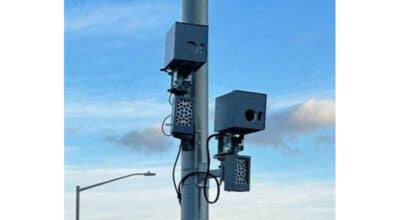Business view lost in tax debate
Published 9:09 am Friday, February 10, 2012
Handwringing by Virginia localities over state legislation that would curtail the onerous machinery and tools tax as a way of stimulating business investment and economic growth reveals a fundamental misunderstanding of government’s role.
The Virginia Association of Counties, in a bulletin to its members last week, sounded the alarm bells about the legislation’s impact on government.
“Please call or e-mail your Delegate or Senator today!” the bulletin implored. “It is extremely important to keep this revenue for 39 cities, 89 counties and 72 towns that implement the machinery and tools tax.”
The bulletin went on to offer the following “talking points” for county officials to use when asking lawmakers to oppose the legislation:
• In FY10, machinery and tools taxes raised $221.2 million. Thirty-nine cities, 89 counties and 72 towns depend on the tax, according to Weldon Cooper Center.
• Based on a telephone survey of 20 localities, machinery and tools collections would drop annually some 21 percent (or $45.4 million) as soon as the bill is fully implemented. Seven percent of new equipment is replaced each year.
• A survey done on behalf of the Governor’s Task Force for Local Government Mandate Review found that the vast majority of Virginia localities are projecting revenue growth less than the state’s 3.3 percent projected revenue growth in FY13.
• The Virginia Municipal League-Virginia Association of Counties 2011 Fiscal Survey showed that more than one-third of Virginia’s cities and counties are less able to meet the financial needs of their communities in FY13 than in FY12.
• Local governments are under fiscal pressure from a declining real estate market and escalating Virginia Retirement System payments. State aid to localities is also being squeezed by other high-priority items in the state budget. State financial assistance will slip to 44 percent of the general fund budget in the next biennium.
• Until such time as a reliable, sustainable revenue source is provided by the General Assembly for localities, machinery and tools revenue must be retained.
• Should the bills pass, localities would no longer be able to use the abatement of the local Machinery and Tool Tax as an economic development incentive.
The bulletin offers nary an acknowledgement of the burden the tax places on the besieged manufacturing sector of Virginia’s economy — or the jobs that could be saved or created if businesses weren’t overtaxed.
It’s a sad testament to what government has become — an institution unto itself, engaged, above all else, in self-preservation.




